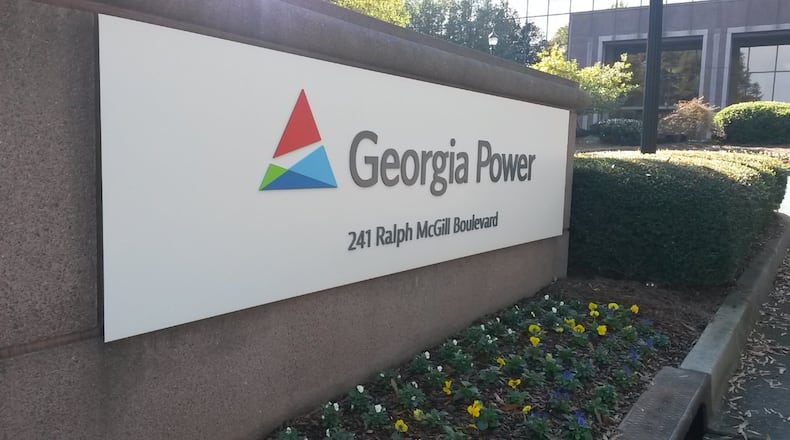State regulators should reject Georgia Power’s bid for a $2.2 billion rate increase over the next three years and allow the utility giant less than half of that amount, staffers at the Public Service Commission are recommending.
Georgia Power had proposed increases that ultimately could add $200 annually to the typical residential customer’s bill, saying the money is needed to improve reliability of the company’s grid and cover increased costs for everything from storm recovery to dealing with ash leftovers at aging coal plants. The company had asked for much of the increase to go into place in January.
But PSC staff and consultants say that’s too much and too soon. They recommended in filings released Friday that the commission authorize about $1 billion in rate increases, phased in over 2021 and 2022. It wasn’t immediately clear what average customer costs would be under the PSC staff’s recommendations.
The five-member elected PSC isn’t expected to vote on the matter until December. A fresh round of hearings on the issue begins Nov. 4.
The commission regulates Georgia Power and sets how much it can charge customers and how much profit it can collect from them. In return, the company gets a government-set monopoly over most of its territory, which includes about 2.6 million customers.
Some consumers have urged the PSC to block some of the proposed rate changes, arguing they would add too much of a burden and reimburse costs that should be covered by the company and its shareholders.
Georgia Power stands by its filing, spokesman John Kraft wrote in an email to The Atlanta Journal-Constitution on Friday. “We fully respect the rate case process and are currently reviewing the testimonies filed by both the PSC staff and intervenors in full.”
PSC staff concluded that Georgia Power’s profit margin should be cut. Some of Georgia Power’s biggest customers have made the same argument, including in filings this week by the U.S. Department of Defense and the Georgia Association of Manufacturers.
Manufacturers argued that Georgia Power’s profit margins are among the highest in the Southeast, while the trend in other states is the cut those margins.
In three of the last five years, the company has earned profits above a target band set by the PSC, topping out above 12%.
The company also faces pushback from PSC staff as well as environmental and solar groups over its proposal to nearly double a $10-a-month fixed charge on residential bills. Georgia Power has said the change would more accurately account for set costs. Opponents argue it would reduce customer control of bills, as well as incentives for energy efficiency. It would also discourage the implementation of solar power, they say, while disproportionately hitting people who use little electricity.
PSC staff suggested the fixed fee go up no more than $2 a month, starting in 2021. Staff also recommended holding off on charging customers for future clean ups of potentially toxic coal ash until Georgia Power refines cost estimates.
The PSC generally has approved Georgia Power rate increases in the past, though at levels lower than what the company initially requested.
Still, manufacturers cited analysis that said elected regulators have approved company profit targets above the industry average.
Georgia Power’s proposal does not include ballooning costs from its nuclear expansion of Plant Vogtle. The company is expected to seek further rate increases in the next few years because of the project, which is billions of dollars over budget and years behind schedule.
Georgia consumers could see other energy bills rise. Over the summer, Atlanta Gas Light asked the PSC to OK a $96 million increase. That would increase charges embedded as a line item in monthly bills paid by customers of numerous natural gas marketers served by the pipeline company. The PSC's staff instead recommended commissioners cut AGL's current rates when they make a final decision later this year.
Like Georgia Power, AGL is part of Atlanta-based Southern Company.
What’s next?
Public hearings on Georgia Power’s proposed rate increase are slated for Nov. 4 before the Georgia Public Service Commission. The hearings could continue through Nov. 7. Another round of hearings is possible Nov. 25 and 26.
The elected PSC is expected to vote on the case Dec. 17.
About the Author
Keep Reading
The Latest
Featured



